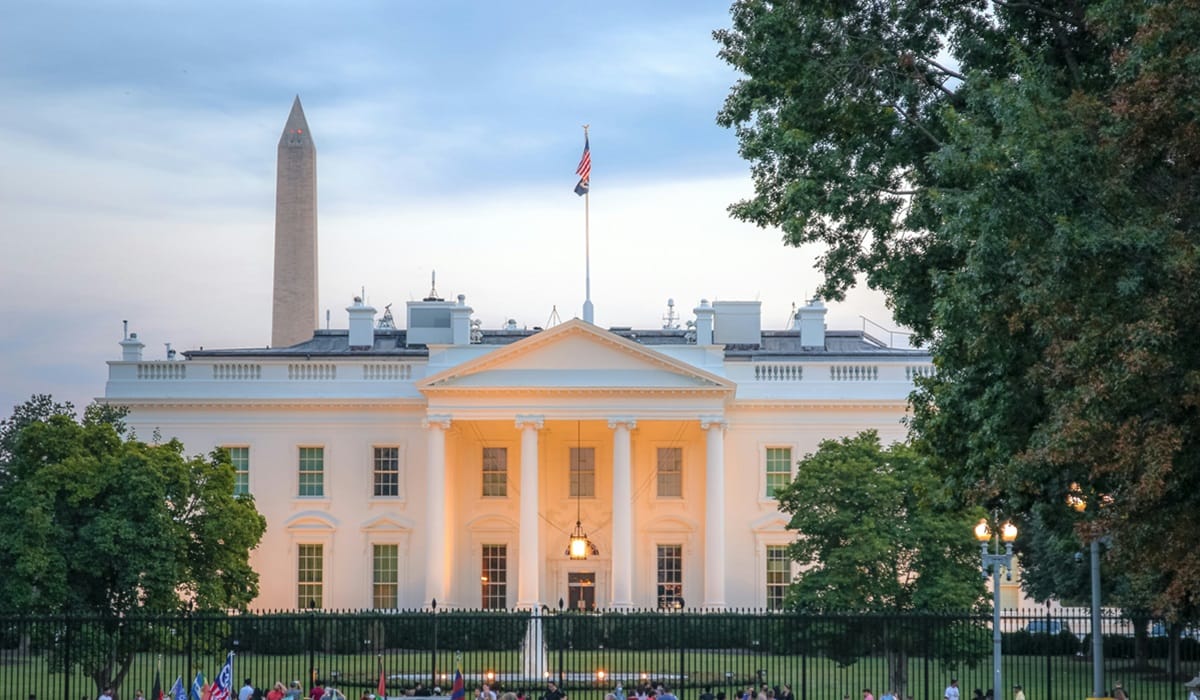Good news for humankind!
From the week of November 20 - 26 2023 C.E.
U.S. Inflation Reduction Act has driven $92 billion investment in EV production and 84,000 jobs
Investment in new manufacturing capacity for zero-emissions vehicles, batteries, and critical minerals have jumped more than 250%, climbing from $14 billion in the year before the Act’s passage to $51 billion in the year since its passage, according to the Clean Investment Monitor.
Kenyans get tree-planting holiday to plant 100 million seedlings
The government is making available about 150 million seedlings in public nurseries in an effort to combat climate change. The tree planting will be supported by an app that helps people match their location with an appropriate species and creates a communal record of tree-planting activities across the country.
For the first time, U.S. prisoners graduate from top university
Northwestern University's Prison Education Program has now welcomed its inaugural graduating class of incarcerated students. Around 100 students are enrolled in the Northwestern program across Stateville Correctional Center for men and the Logan Correctional Center for women.
Gulfstream completes first-ever transatlantic flight with 100% Sustainable Aviation Fuel
SAF is designed to cut aviation carbon emissions by using sources that rely much less on fossil fuels: include maize, seed oils, algae, animal fats, oils, greases, farm residues, and more. According to Gulfstream, SAF has the potential to reduce net carbon emissions by 70%.
New Jersey to ban sales of gas-powered cars by 2035
Under the state Department of Environmental Protection’s “Advanced Clean Cars II” rule, manufacturers must ensure that 43% of new light-duty vehicles they make in 2027 are electric, with the percentage rising annually to 100% by 2035. Most consumer cars and pickup trucks are considered light-duty.
One-dose drug reduced genetic bad cholesterol by 94% for almost a year
Researchers from the Cleveland Clinic have conducted the first human trials of a new drug, lepodisiran, that has the potential to eliminate a risk factor for cardiovascular disease for which there is currently no treatment.
Deforestation in Colombia down 70% year-on-year
Since taking power last year, leftist President Gustavo Petro has enacted a slate of new policies aimed at protecting Colombian forests, including paying locals to conserve woodland. The recent gains in Colombia mirror similar advances in the Brazilian Amazon, where leftist President Luiz Inacio Lula da Silva has cracked down on forest clearing.
British Columbia, Canadian government, and First Nations announce $1 billion conservation agreement
The Canadian federal government has signed its first major nature agreement with a province and First Nations to mutually support protecting 30% of lands and waters by 2030. The agreement is meant to protect old growth forests in the B.C., support the recovery of at-risk species, and restore ecosystems.
Butler University to become third U.S. college to offer two-year, debt-free associate degree program
The new program aims to help students of color, first-generation college students and students from low-income households receive a higher education. After earning an associate degree, the new program will also allow students to receive a bachelor’s degree from the university for about $10,000.
Chinese scientists develop novel gene therapy that allows deaf children to hear for the first time
The scientists from Shanghai's Fudan University implanted new genetic code into a harmless virus and then injected the viruses into the children's cochlea. They say the experiment has sparked hearing in four out of five children who received the treatment.
U.S. President Franklin Roosevelt begins implementing his “New Deal” (1933 C.E.)
The New Deal was a series of programs, public work projects, financial reforms, and regulations in the U.S. between 1933 and 1938. According to the Encyclopædia Britannica, "perhaps the greatest achievement of the New Deal was to restore faith in American democracy at a time when many people believed that the only choice left was between communism and fascism".
The U.S. begins implementing its “Green New Deal” to combat climate change and economic inequality (2029 C.E. ???)
After years of advocacy and proposals, progressive U.S. lawmakers pass a sweeping bill to create hundreds of thousands of jobs in renewable energy, EV manufacturing, and other industries essential to a net zero economy.
Archive of Human Genius
These milestones have been added to our database of social change milestones – past, present & future. Filter by topic, country, era, and more. Explore.

Writer's block
For the last couple of months, I've been writing and releasing a series called Purpose 101. The intent is to articulate some of the foundations of my coaching philosophy: especially purpose, genius, leadership, personal transformation, and social change.
But for the last several weeks, I've been experiencing some pretty gnarly writer's block. And I've felt conflicted about how to orient to it.
On one hand, I'm a big proponent of Steven Pressfield's The War of Art mentality: my main job is to show up each day and put in the time. Whether I come up with anything usable is not really up to me. I am committed to showing up and putting in the time, even when – perhaps especially when – the words are not coming to me as I might want. I believe that when I demonstrate this kind of devotion to my practice, the universe will eventually offer me what I'm looking for.
But there's also a way in which I've just been bashing my head against the wall, doing the same thing over and over and expecting new results. I sense there's something that needs to shift before the words will start flowing again.
I notice that I've become pretty anxious about when I finally publish these articles. In my mind, I should be posting something once a week. That way, I'd offer you a sense of consistency and make sure you stay tuned in to what I'm creating. I notice that I'm often worrying about this as I'm trying to write, to the extent that it's actually become a significant barrier to good work. In fact, as the writer's block stretches on, the worry just grows and grows.
Something clicked this week: Maybe the muses resent my agenda and rigid schedule. Maybe the writing will come only once I let it come on its own schedule.
So here's my new commitment: I am going to keep writing my Purpose 101 articles, at least 30 minutes every workday. But I am going to finish and publish them whenever they are ready without any kind of schedule or agenda in mind. It might be in a couple days. It might be in a year. I formally absolve myself of any responsibility to stick to a publishing schedule. 😄
Are you stuck somewhere in your life? What added devotion might you offer to the universe? Where might you release yourself from unnecessary rigidity?

Peter Schulte
Life & Career Coach
Founder & Executive Director, Spark of Genius
he/they
1 on 1 Coaching
I help purpose-driven leaders tap into their innate genius, walk their authentic path, and make their deepest contribution to the greater good. Learn more.









